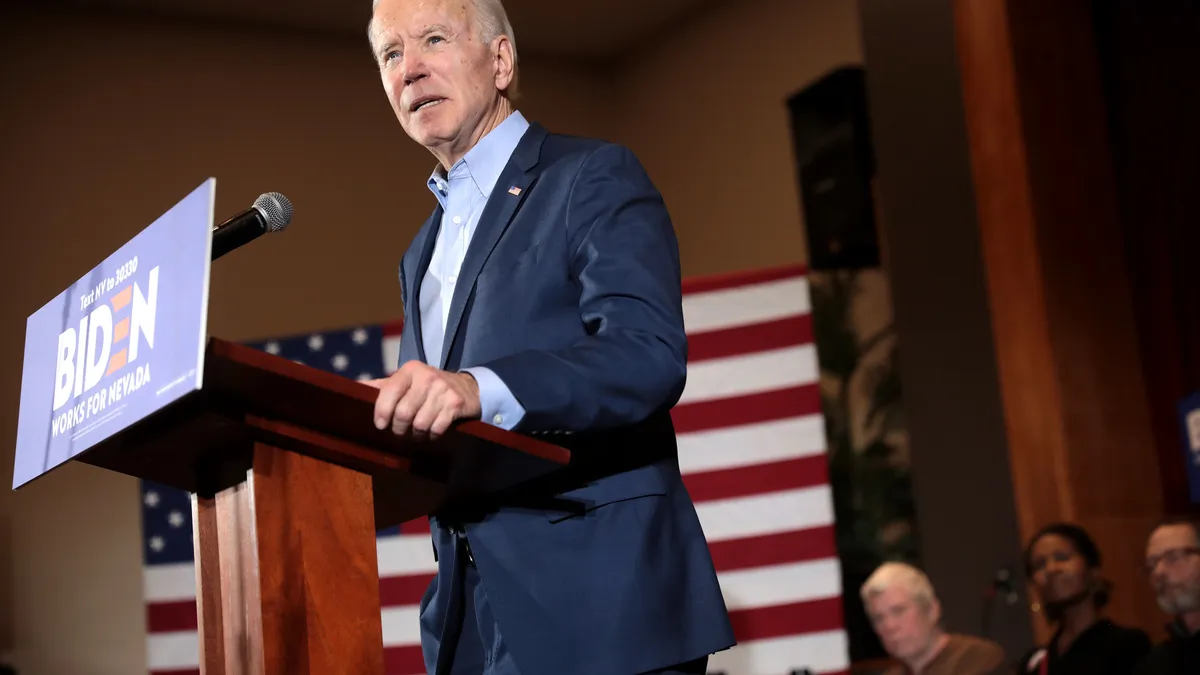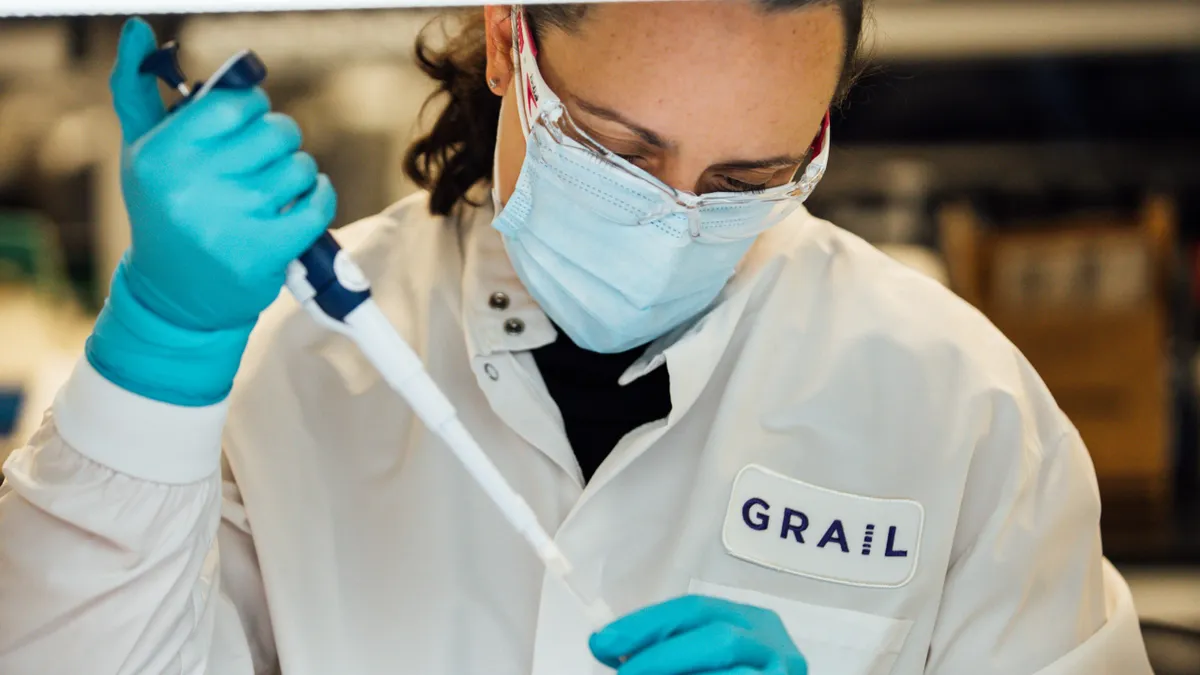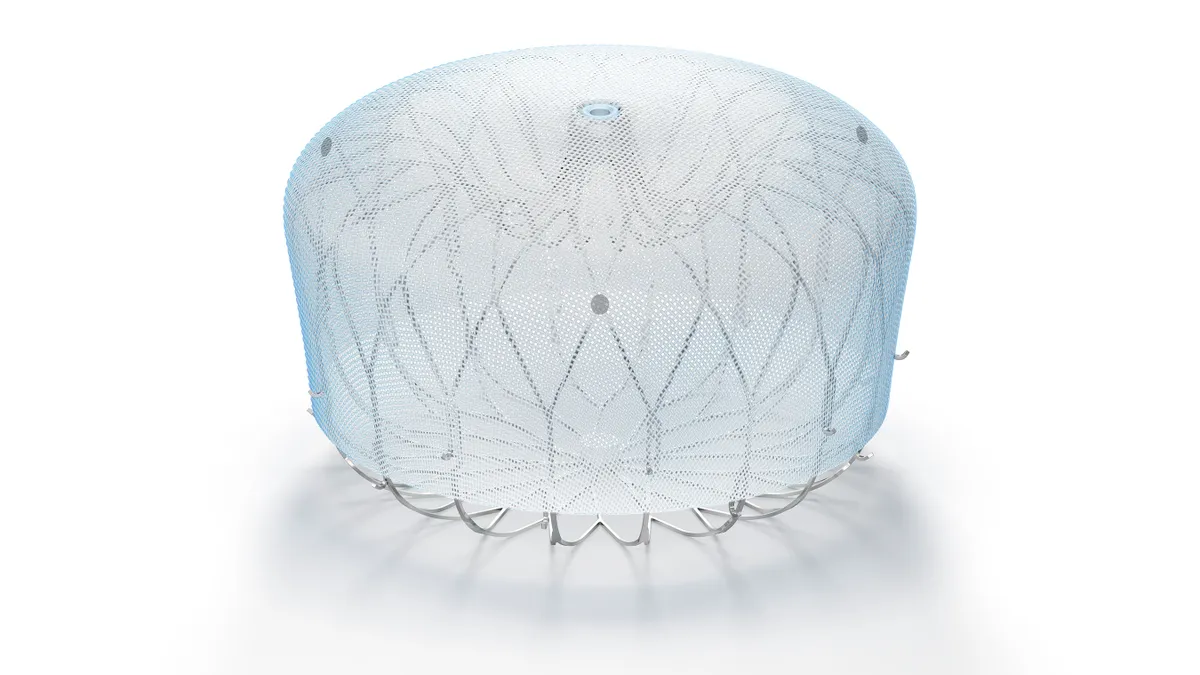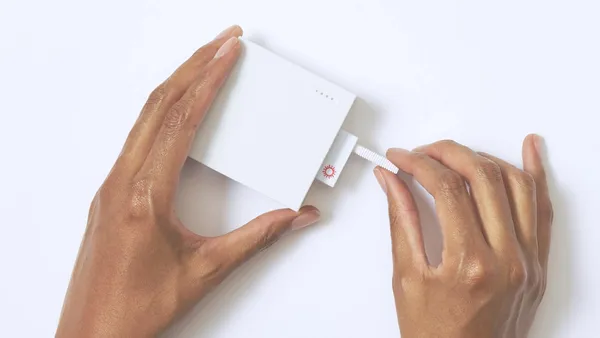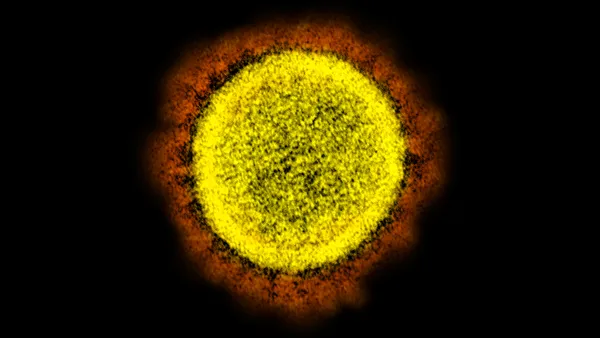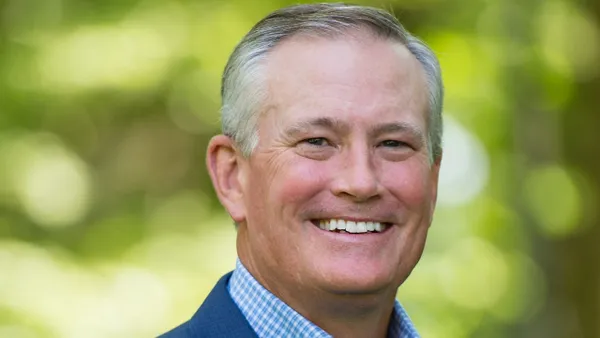Dive Brief:
- President-elect Joe Biden in a victory speech Saturday night said battling the coronavirus will be his administration's top priority as the U.S. hit the highest daily number of new cases since the start of the pandemic.
- Biden on Monday named a panel of scientists and public health experts to serve as transition team advisors to help turn his COVID-19 plan into an "action blueprint" intended to begin when he takes office Jan. 20. The plan calls for doubling the number of drive-through test sites and increasing testing capacity "by orders of magnitude" through investing in at-home and instant tests. However, the Biden team has not provided details on dollar amounts or how to pay for broader access to testing.
- Michael Mina, a professor of epidemiology at Harvard's T. H. Chan School of Public Health, said in a press briefing Friday that Biden's testing plan is "absolutely what's needed." Mina estimates that $10 billion per year would be sufficient for the manufacture and deployment of rapid tests on a scale required to help suppress the "massive" outbreaks currently impacting the country and get the virus under control.
Dive Insight:
Biden on Saturday night said his administration's federal response to the coronavirus will begin immediately after the inauguration with the goal of getting runaway COVID-19 transmission under control. As the president-elect delivered his remarks, the U.S. for the first time during the pandemic recorded for the third straight day more than 100,000 new cases of the virus.
While President Trump has put states in charge of securing coronavirus tests, Biden's plan is meant to provide a more centralized approach to "ensure all Americans have access to regular, reliable, and free testing," in part by doubling drive-through sites nationwide and expanding at-home diagnostics.
"We can't have every state doing this on their own," Harvard's Mina said. "This needs to be coordinated and the only way to coordinate the whole country is to do it at the national level."
To carry out this centralization strategy, the Biden plan calls for the establishment of a Pandemic Testing Board, similar to how the War Production Board created by Franklin Roosevelt in 1942 directed procurement of materials and industrial production during World War II. "It's how we produced tanks, planes, uniforms, and supplies in record time, and it's how we can produce and distribute tens of millions of tests," states Biden's plan.
For advice during the transition, former surgeon general Vivek Murthy, former FDA Commissioner David Kessler and Yale University professor Marcella Nunez-Smith will co-lead the task force. Former Biomedical Advanced Research and Development Authority Director Rick Bright, demoted by the Trump administration, is also on the panel.
The American Clinical Laboratory Association, whose members include LabCorp and Quest Diagnostics, applauded the incoming administration "for making it a top priority to ensure that all Americans have access to accurate and reliable testing," per a statement from Julie Khani, ACLA's president. Khani said ACLA and the Biden team are in agreement that "patients need certainty that their COVID-19 tests will be covered."
Khani also said ACLA remains focused on ensuring labs can keep on investing in high-precision instruments, test supplies, workforce training and modernized reporting systems to meet the growing need for COVID-19 testing nationwide.
ACLA has previously warned that with laboratory cuts to designated tests under the Clinical Lab Fee Schedule (CLFS), slated to begin again in January 2022, threaten access to testing for seniors and other vulnerable populations.
"We're battling the greatest public health threat in a century, and access to accurate and reliable testing remains critical. Now is the time to close coverage gaps, strengthen our laboratory infrastructure and eliminate future cuts to the services that are vital to our public health," Khani said in an emailed statement last week.
In Congress, lawmakers have been unable to agree to another coronavirus package, although Democrats have in general pushed for more funding to labs and states to ramp up testing.
While AdvaMed CEO Scott Whitaker in a Friday blog shared on LinkedIn said the Trump administration should be applauded for its support to U.S. diagnostics infrastructure, Whitaker said the federal government can do more to help test manufacturers.
"Washington can provide a low-interest/interest-free loan program for diagnostics companies to expand their infrastructure, so they can deliver even more tests. Washington should also increase procurement funding for the National Strategic Stockpile, so that our country has sufficient testing supplies stored up for emergencies," Whitaker wrote, giving instruments, reagents, swabs, transport media and pipettes as examples.
Public health experts see the widespread availability of rapid COVID-19 tests, in particular, as critical to quickly detecting and controlling the massive coronavirus outbreaks the U.S. is currently experiencing. Mina, whose research is focused on at-home tests, said he hopes the presidential election can serve as "an inflection point" for the country to "start creating policy around how to actually tackle this virus in a truly meaningful way" by increasing testing with rapid antigen tests.
Mina contends a Biden administration will bring "scientific rigor and strategy" but did criticize Biden's plan for its emphasis on doubling the number of drive-through test sites. "If we want people to use tests frequently, we have to make them convenient. Drive-throughs are never going to be convenient," Mina said.
While "it's good to keep increasing those for surveillance testing," he believes a massive scale-up of rapid, inexpensive at-home paper strip antigen tests hold the key to ensuring Americans have access to diagnostics on a weekly basis for self testing.
On that front, earlier this month Gauss Surgical shared clinical results for an at-home rapid COVID-19 test it claims is comparable to the polymerase chain reaction gold standard for detecting SARS-CoV-2 infections used in CLIA-certified laboratories. Gauss plans to submit an application to FDA for emergency use authorization for the diagnostic, which uses a nasal swab for self-collection and a smartphone app to deliver results within 15 minutes.
Also in the works is a simple paper-based COVID-19 diagnostic called INSPCTR being developed by Sherlock Biosciences with technology licensed from Harvard. The paper strip analyzes a saliva sample and delivers results in 20 to 30 minutes. The company describes it as looking similar to an at-home pregnancy test. INSPCTR could be authorized and ready for public use during the first half of 2021, according to Sherlock.


